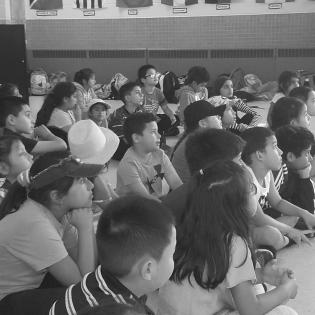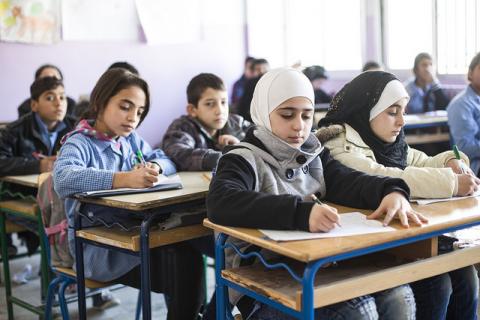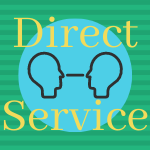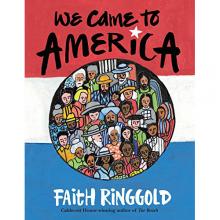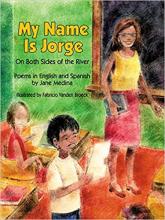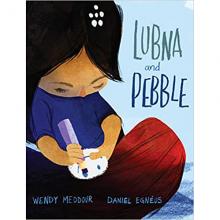Immigration and Refugees
This toolkit guides youth, educators, group leaders, families, and community groups as they investigate the issue of immigration and refugees and prepare to take action. Contents:
- Current story
- Definitions
- Key questions
- Background
- Lessons and activities
- Resources in your community
- Project ideas and guide to service-learning
- Quotes
Refugees in Our Community
Lately, the world has witnessed some of the largest refugee and immigration crises. In 2020, it is estimated that there were 11,800 refugees living in America where they sought a safe place to live. This prominent human rights issue impacts every individual in some way or another. Fortunately, youth have the ability to take action through advocacy and service.
“We have become not a melting pot but a beautiful mosaic. Different people, different beliefs, different yearnings, different hopes, different dreams.” ― former president Jimmy Carter
Share this example of youth action.
This video follows a girl and her family as she goes from a peaceful home and loving family celebrating her birthday to a national crisis that quickly strips her of everything and washes her up in a unfamiliar place all alone. This brief film raises awareness of how refugees leave their homes that are no longer safe to find refuge in a place where they can build a new home.
Definitions and Key Questions
See the handout below for Vocabulary and Key Questions related to immigration.
Definitions:As young people build knowledge and passion for immigration and refugee work, they can look up vocabulary and read more about the issues and needs. Here are some of the relevant vocabulary words.
- Immigration
- Refugee
- Oppression
- Bias
Key Questions for Learning and Service:
These key questions may guide investigation or generate inquiry about other areas of interest. The best service-learning experiences follow the passions of youth and local concerns. Here are some sample questions:
-
Tell a story of a time you witnessed someone being treated unfairly due to their ethnicity. What can you do to respond to inequity?
-
Where do you see opportunities for growth and awareness related to immigration and refugee rights in your community?
-
How does your community address issues related to immigration and refugees? What resources are available? How do these resources help the community?
Background Information
These background resources inspire and inform youth about immigration and refugee issues.
- Immigrant and Refugee Experiences podcast Overview and Episodes. The "Kids are Philanthropists, Too!" podcast and discussion guides are for people of all ages to explore important social challenges with kids as your guides.
- United We Dream #HereToStay Toolkit for Educators
- Learning to Give white paper about refugees
- TeachingRefugees.com: Tips for Teaching Refugees with limited formal schooling. This is a collection of ideas and advice from teachers who have experience with students of refugee backgrounds.
- Homeland security immigration data and statistics
- Article on what a refugee is and ways to help refugees.
- NPR Video on immigration policies
- The Statue of Liberty has come to be a symbol of welcome to immigrants and refugees. The website provides historical information through stories.
- Stories of 10 youth refugees from different countries. Heartlands Refugee Arts Project
Lesson Plans
Learning to Give has hundreds of lesson plans to inspire and inform youth action. Search our full list of lesson plans about refugees for topics that fit your interests and age of your kids. Narrow your search by grade level and subject area. Here are some sample lesson plans:- It's a Free Country, Isn't It?: While reviewing the expectations for immigrants to become citizens, young people learn about their own rights and civic responsibility. They learn that freedom isn't free. It was purchased by service and requires continued responsibility of citizens to uphold the rights and expectations of the common good.
- Helping Children in Need: This activity of categorizing items into wants or needs raises awareness that many times refugees are without resources to meet basic needs.
- What Is a Refugee? What Is it Like to Leave Home?: The images and videos bring awareness to the difficulty of leaving one's home because it isn't safe.
- The Journey and Adjusting to New Life: Through video, a simulation activity about learning a new language, and discussion, participants build understanding of life as a refugee.
Community Resources
For meaningful service-learning projects with long-lasting impact, connect youth to people and nonprofit organizations in the local community related to immigration and refugees. This is an opportunity for a field trip (maybe virtual) or for an expert to teach about issues and what is already being done. Youth may write, call, or interview experts about needs and partnerships.
- Ask youth if they have family members whose work is related to immigration.
- Local faith-based organizations and community centers
- U.S. Committee for Refugees and Immigrants (USCRI) This refugee resettlement agency works to protect the rights and dignity of people in forced or voluntary migration worldwide. Source of information for advocacy and research, as well as community partnership opportunity in 96 cities in America.
- Catholic Charities is a refugee resettlement agency offering service opportunities for helping, advocating for, and working with newly arrived refugees.
- World Relief is a faith-based organization that focuses on refugee services, disaster response, and economic development to help displaced and otherwise vulnerable people internationally. They have many ways for young people to get involved, including tools for advocacy, education, direct service, and fundraising.
- UNHCR The United Nations refugee agency offers statistics and infographics on the scale of the refugee problem in the world. A good source for research and information.
- UNICEF This organization is dedicated to ensuring that children around the globe have a fair chance for success through programs dedicated to a variety of services for refugees and other children. A great resource for research.
- Nonprofit organizations that focus on these issues
Project Ideas
There are four types of service. The ideas below are grouped by these types. The best service-learning experiences follow the passions of youth and local concerns. These are provided to start conversations and ideas.

This overview Guide for Planning Service-Learning describes each step of the process and actions to take.
This blank chart for Planning Service-Learning helps youth prepare for who does what for maximum service and learning impact
- Organize a drive of items that refugee families may need. This could include new kitchen items, sheets, and bedding; bikes and bike helmets for children and adults; or non-perishable, culturally sensitive food staples such as rice. Contact a local refugee resettlement agency or service agency to see which items are needed. (indirect service)
- Create a Welcoming Kit for refugees coming to your school or neighborhood. This can include a backpack of important school supplies for your class that your new classmate will need to complete his or her schoolwork
- Plan a Family Cultural Night event that recognizes and celebrates the variety of cultures in your community.
- Participate in a Walk-a-Thon or other fundraiser to raise awareness and money for an agency that supports refugees in America.
- Participate in a Walk-a-Thon (such as World Vision's 6K for water) for an organization that helps people in countries from which a lot of refugees come.
- Create a PSA including information about refugees, what causes a person to become a refugee, needs that they may have, why it is important to help them, and ways to welcome them into our communities. See if your school will play this on the morning announcements, or if it can be shared with the community in some other way.
- Attend a cultural event at a local cultural center or house of worship. Learn about the culture and traditions of refugees who are arriving in America.
- If there is a refugee student in your class or school, make sure he or she gets a special invitation to school events. Welcome him or her personally!
- Support refugees living around the world by donating to a vetted nonprofit
- Share your knowledge and ideas for action related to refugees through writing and illustrating an ABC book. Service Sparks: ABCs of Advocacy
- Hold a community information night to raise awareness and inform community members what they can do to make the community more inclusive.
- Write letters to your local newspaper or elected official about what you have learned about refugees coming to America and why it is important to welcome and help them.
- Research a country from which a lot of refugees come. What is life like there?
- Research a refugee group that came to America. What brought them? How have they contributed to America?
- Research a refugee who has changed history.
- Watch documentaries about refugees from a variety of nations. Children of Syria and Exodus from PBS are good choices.
Literature Guides
We Came to America Faith Ringgold reminds us that America is made up of diverse groups from all over the world. She highlights Indigenous Americans who were here before others, as well as enslaved Africans who did not immigrate but were forced to come to America. Other groups came from every country in the world, bringing their Muslim, Asian, European, Black, and Hispanic cultures, religions and arts to create the America we know today.
My Name is Jorge literature guide provides discussion questions for this book in verse. Jorge is learning English. He wants to be like the other boys and girls in his class, while also being true to he is. Jorge’s journey is very similar to a lot of children migrating to the United States. Jorge’s point of view invites others to see the value in bilingualism and differing cultures. It also allows the reader to think through their actions and reflect on their interactions with others in their community.
Lubna and Pebble In this book, Lubna arrives as a refugee in a tent city after escaping an unknown place in the Middle East with her father. She faces confusion and loneliness while missing her family. Lubna finds comfort in talking to a pebble until she meets another friend. Her generosity when she finds a home and leaves her new friend is touching example of the power of empathy and kindness
Quotes
Ways to use quotes with youth: Use it to spark conversation. Write about its meaning or do research on the person or topic. Represent the quote visually and display in social media. Tell whether you agree or disagree with the quote. Rewrite it to speak for you.
“My fellow Americans, we are and always will be a nation of immigrants. We were strangers once, too.” — Barack Obama
“To be called a refugee is the opposite of an insult; it is a badge of strength, courage, and victory.” — Tennessee Office for Refugees
“Injustice anywhere is a threat to justice everywhere.” — Martin Luther King Jr.
“We have a legal and moral obligation to protect people fleeing bombs, bullets and tyrants, and throughout history those people have enriched our society.” — Juliet Stevenson
“Reading makes immigrants of us all. It takes us away from home, but more important, it finds homes for us everywhere” — Jean Rhys
